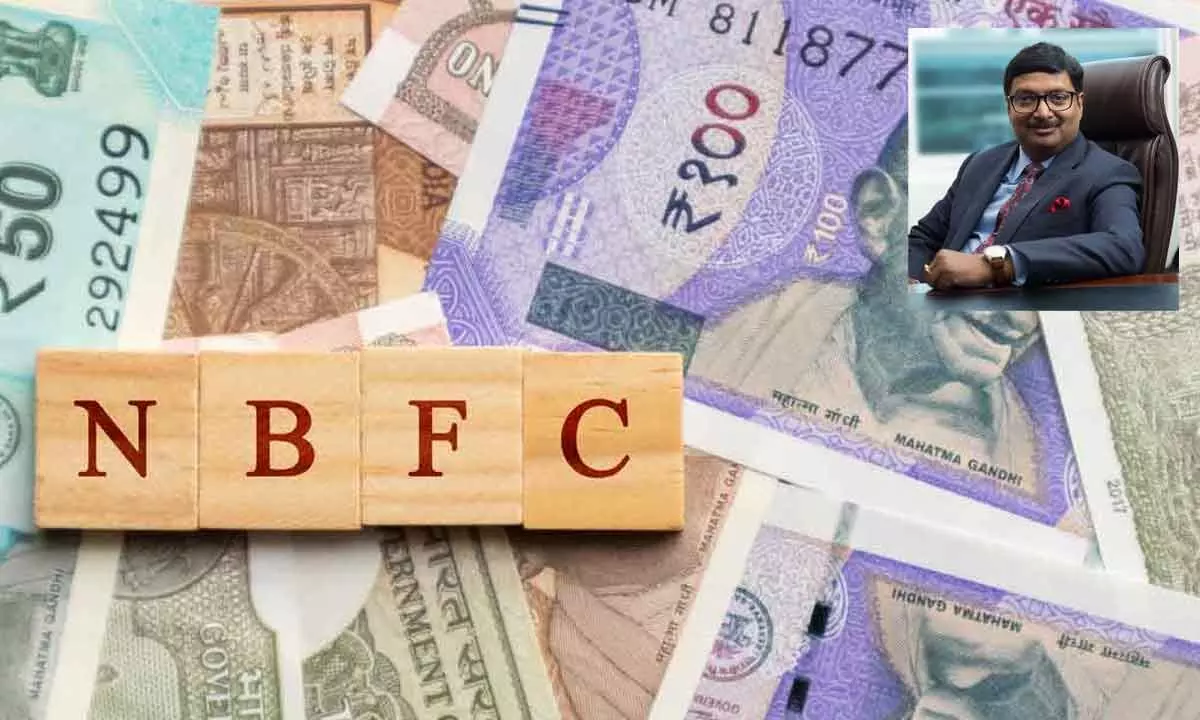‘NBFCs are playing a critical role in the nation building’
The RBI norms for unsecured retail loans being given by NBFCs are a positive development that will help to promote financial stability and consumer protection
image for illustrative purpose

I am honoured to join the Board of FIDC, an organisation dedicated to the disciplined growth of NBFCs. My agenda will revolve around representing the voice of medium-sized NBFCs, fostering collaboration with regulators, and guiding members on self-governance - Shachindra Nath, Founder, Vice Chairman & MD, UGRO Capital
Mumbai: Shachindra Nath, Founder, Vice Chairman & Managing Director of UGRO Capital has joined the board of Finance Industry Development Council (FIDC). FIDC is a Representative Body of NBFCs registered with the Reserve Bank of India. FIDC was formed 19 years ago and is the recognized face of the NBFC sector. FIDC has been engaged in regular interaction both with Reserve Bank of India and Govt. of India, which include pre-budget meetings and also important policy related meetings with RBI. Almost all the leading NBFCs and a large number of small and medium sized NBFCs are members. He spoke to Bizz Buzz. Here are the excerpts.
You have joined the board of FIDC. What is your comment?
NBFCs are playing a critical role in the nation building and are key to providing credit to the underserved and unserved customers. FIDC, an apex body fully committed to the disciplined growth of NBFCs and its upskilling, FIDC is focused and concentrated in representing NBFC sector andhas been at forefront in collaborating with regulators, guiding its members on self-governance and being the bridge of voice between regulators and industry on both sides. The lines between NBFC, Fintech and Digital Lenders are getting blurred with every passing day – it would be my endeavor to represent the voice of medium size NBFC and also support FIDC Board’s aspiration to be more broad-base and inclusive. I thank my fellow-Directors for giving me the opportunity to serve the industry through its platform.
What will be your agenda at FIDC?
I am honoured to join the Board of FIDC, an organisation dedicated to the disciplined growth of NBFCs. My agenda will revolve around representing the voice of medium-sized NBFCs, fostering collaboration with regulators, and guiding members on self-governance. As the lines between NBFCs, Fintech, and Digital Lenders blur, I aim to support FIDC’s aspiration to be more broad-based and inclusive. Nation-building is closely linked to the role of NBFCs, and I am committed to contributing to this critical sector.
How do you see the condition of MSMEs?
The MSME Sector in India is the backbone of our economy and remains a crucial cog, contributing to approximately 30 per cent of the nation’s GDP, accounting for 50 per cent of its exports, and providing employment to over 11 crore people. But MSMEs still remain severely under-banked and underserved. With a vast credit gap of about $600 bn existing, financing in this sector is of utmost importance. This is where U GRO Capital’s role is plugged in. With a sole focus on uplifting MSMEs, the company aims to ‘Solve the Unsolved’ credit gap and empower the MSME Ecosystem as a whole.
What is your view on the recent RBI norms for unsecured retail loans being given by NBFCs?
The RBI norms for unsecured retail loans being given by NBFCs are a positive development that will help to promote financial stability and consumer protection. The new norms will require NBFCs to set aside more capital for unsecured retail loans, which will reduce their risk exposure and make them more resilient to economic shocks. Additionally, the new norms will place limits on the amount of unsecured retail loans that NBFCs can give to individual borrowers, which will help to protect consumers from over-borrowing. Also since U GRO Capital only business loans, we don’t foresee a significant impact on liquidity because of this circular. As our asset under management qualifies for PSL classification, we do not expect any material impact on the cost of borrowing due to the increase in risk weights for Bank Credit to NBFCs.
RBI governor has asked banks, NBFCs to go for continuous stress-testing. What is your view?
Continuous stress-testing is a prudent approach advocated by the RBI governor, considering the dynamic nature of the financial markets. It serves as a proactive measure to identify vulnerabilities and enhance the resilience of banks and NBFCs. Embracing stress-testing methodologies is crucial for maintaining financial stability and safeguarding the interests of all stakeholders. As a member of the FIDC Board, I will encourage collaboration in implementing robust stress-testing mechanisms within the NBFC sector to ensure its long-term sustainability.

